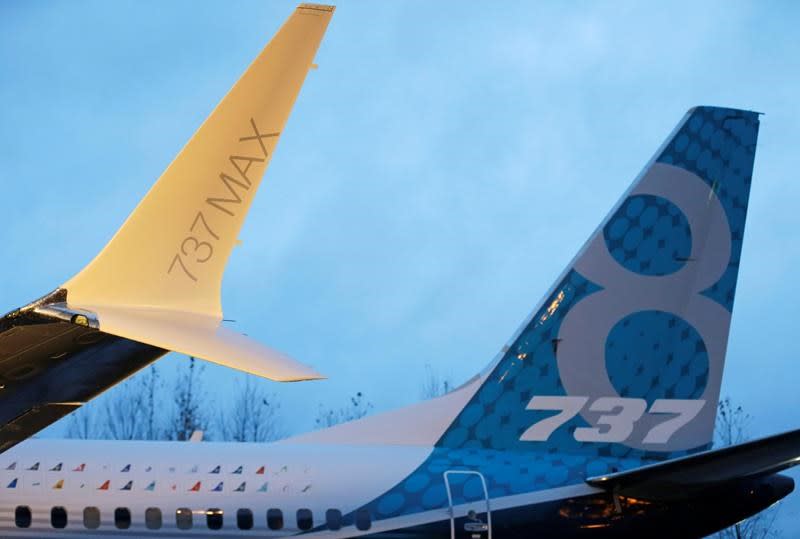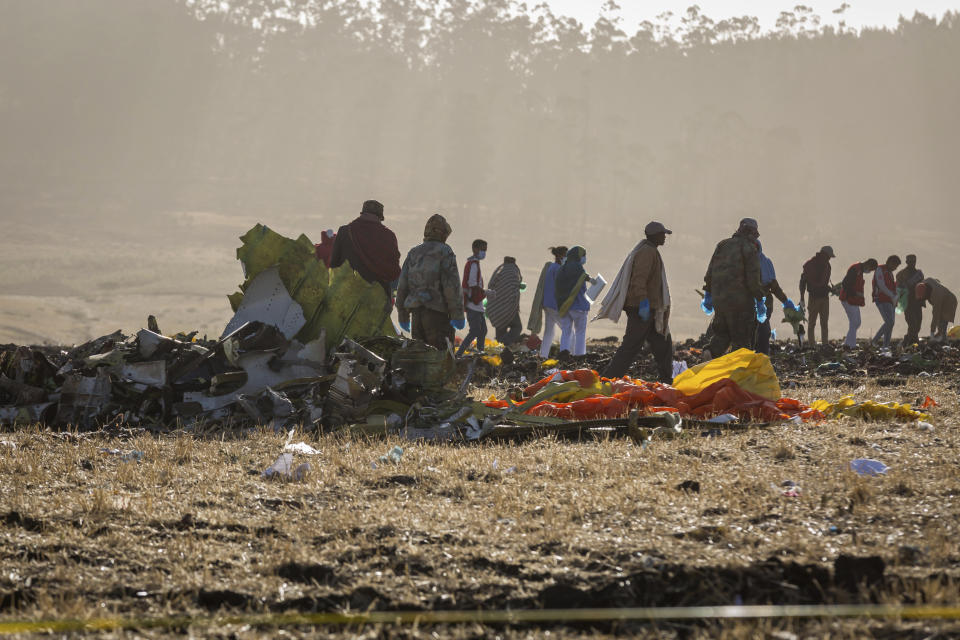Canada has no plans to ground Boeing 737 MAX 8, despite EU suspension

Canada’s Transport Minister said the government is considering “all potential actions” but has yet to follow its European counterparts and ground the plane involved in the Ethiopian Airlines crash that left 157 dead.
Transport Minister Marc Garneau said on Tuesday that he had cancelled scheduled meetings and public events to meet with a Civil Aviation Expert Panel to discuss the Boeing 737 MAX 8 aircraft, which has been involved in two deadly crashes in the span of five months.
I've canceled all my meetings and public events today in order to meet with my Civil Aviation Expert Panel. All evidence is being evaluated in real time and we're considering all potential actions.
— Marc Garneau (@MarcGarneau) March 12, 2019
As of Tuesday afternoon, the government had not decided to ground the aircraft, which is flown by Canada’s two largest airlines, or ban it from Canadian airspace. Eighteen Canadians were among the 157 passengers and crew who were killed in Sunday’s Ethiopian Airlines crash involving the Boeing plane.
The list of countries and airlines opting to ground the aircraft grew on Tuesday, intensifying the pressure for other authorities around the world to follow suit. Both Canada and the United States have so far stood by the aircraft.
The United Kingdom was the first European nation to ban the plane on Tuesday, releasing a statement saying it would be issuing instructions to stop aircraft from entering its airspace as a precautionary measure. The move was soon followed by similar grounding orders or bans in France, Germany, Ireland, Poland and the Netherlands.
Shortly after, the European Union Aviation Safety Agency (EASA) suspended all flight operations of the MAX 8 and MAX 9 models of the aircraft in Europe.
Garneau told reporters in Montreal on Tuesday that he has no plans to ground Canada’s fleet of 737 Max 8 aircraft, but that “all options are on the table.”
“This could include grounding the planes, but at the same time I will evaluate the possibilities and not jump to conclusions before we can clearly evaluate the situation,” Garneau said, stressing that he would not be “influenced by emotions.”
A day earlier, Garneau had said that Transport Canada was awaiting information about the cause of the crash from United States authorities, including the Federal Aviation Administration (FAA) and the National Transportation Safety Board (NTSB), which are investigating the crash as the MAX 8 is a U.S.-certified aircraft.

U.K. ban is ‘extremely significant’
Boeing, which has seen its stock fall 6.2 per cent as of Tuesday afternoon, stressed that the company has full confidence in the safety of its 737 MAX.
“The United States Federal Aviation Administration is not mandating any further action at this time, and based on the information currently available, we do not have any basis to issue new guidance to operators,” the aerospace manufacturer said in a statement Tuesday.
But Scott Hamilton, an aviation analyst with Leeham News in the U.S., said the fact that the U.K.’s aviation authority and EASA banned the plane from flying in-and-out of their airspace was “extremely significant.”
“It’s one thing when you have Grand Cayman Airways – a small carrier where a crash could destroy the airline – take two planes out of service,” Hamilton said in an interview with Yahoo Finance.
“It just doesn’t carry the same weight as the U.K. or EASA … when EASA says ground the plane, the FAA ought to be following suit. Frankly, one could make an argument that perhaps they should be leading the way.”
Air Canada and WestJet Airlines Ltd. fly 24 and 13 Boeing 737 MAX jets, respectively. Earlier this week, both airlines touted the safety of the aircraft. No decisions have been made by either to ground the jet.
So far, at least one of Air Canada’s flights have been affected by the European Union ban.
Lauren Stewart, a spokesperson for WestJet, said the airline is involved in ongoing discussions with Transport Canada, Boeing, and other Canadian operators about the plane. She added that although the airline uses the aircraft on flights between Halifax and London and Paris, the routes are seasonal and would not be impacted by the European Union ban.
With files from the Canadian Press.
Download the Yahoo Finance app, available for Apple and Android.


